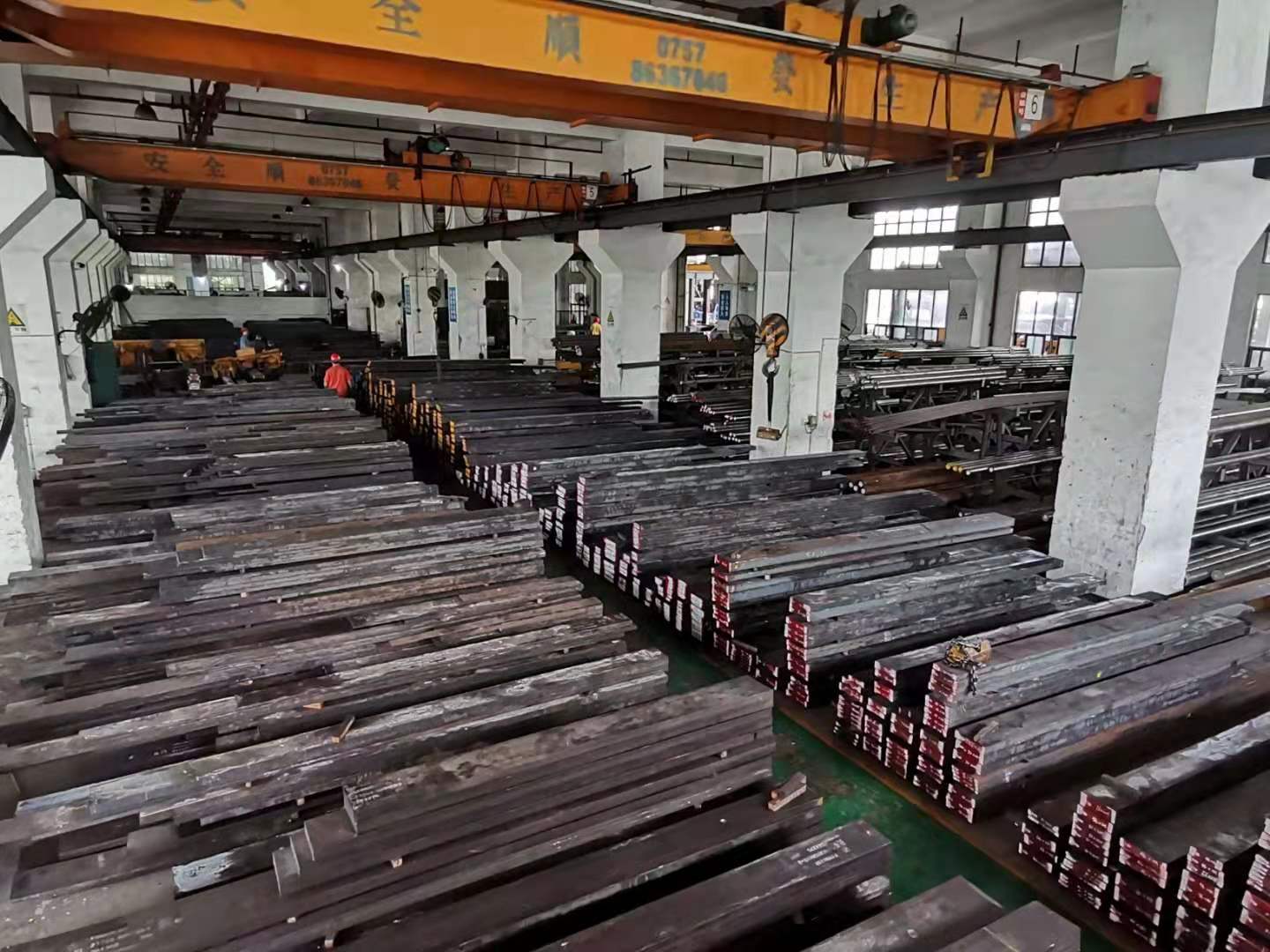1.2738 Plastic Mold Steel
Function:
1. Uniform material with high purity
2. Excellent polishing performance and lithography performance
3. Good electrical processing performance and skin texture processing performance
One. Product Description
1.2738 Mold Steel is a grade of steel suitable for galvanic corrosion operations, made in Germany, for acid plastics and moulds that require a good polish.
Two. Quality Standard
GB/T 10125 Standard Specification
Three. Product Specifications

Four. Equivalent Grade of 1.2738 Mold Steel - For Reference Only
|
|
China GB |
Germany DIN |
US AISI |
Sweden SS |
EU EN |
IOS |
|
1.2738 |
3Cr2NiMo |
1.2738 |
P20 |
718 |
X1CrNiMoCuN20-18-7 (1.4547) |
35CrMo2 |
Five. Product Features and Uses
Features:
1. The material is uniform and high in purity.
2. Has excellent polishing performance and lithography performance.
3. Good electrical processing performance and dermatoglyphic processing performance.
Use:
1. Large and long-life injection mold.
2. Moulds for home appliances, car shells, etc.
3. Plastic mold with high surface finish.
4. Plastic product molds that require bright surfaces, such as telephones, PMMA products, etc.
5. On large plastic molds and mold bases, such as automobile bumpers, TV casing molds, etc., it is suitable for molds requiring high gloss, such as the production of rigid plastics (PS) and super non-quenching (ABS), etc. ..
Six. Product Detailed Information
1.2738 steel adopts advanced mold steel refining technology and is a Cr-Ni-Mo alloy steel smelted by vacuum.
Steel has excellent polishing performance and lithography performance, excellent machinability, good wear resistance, uniform hardness of large molds, dense structure, surface nitriding performance, and can be subjected to surface flame hardening treatment to improve the surface hardness of the mold and Abrasion resistance. The mold must be fully softened and annealed before quenching. After quenching, it should be tempered in time and heated slowly.
The finishing EDM in the post EDM stage should be carried out with low current and high frequency to avoid damage to the mold. After discharging, the mold surface should be ground to remove the "spark white layer", and then tempered again at 500°C to remove stress.
When grinding and tempering molds, in order to prevent cracking and surface softening, attention should be paid to: sufficient cooling, appropriate grinding pressure, and reasonable processing technology.
The steel is pre-hardened plastic mould steel with good polishing properties, usually polished with alumina or plaster. First rough polishing, then polishing with finer and finer abrasives. The polishing direction should be changed every time the abrasive is changed. The final polishing time should not be too long, otherwise it will affect the roughness of the mold surface.
Nitriding can increase the surface hardness of the mold, improve wear resistance and corrosion resistance. Although the steel has been pre-hardened, the hardness can still be increased by heat treatment.
Availability
Pre-hardened state, hardness 330~370HBW.
Quenched and tempered, hardness 35~39HRC.
Material properties
Physical properties (sample hardness 340HBW, room temperature and high temperature)
1. Temperature 20°C/200°C/400°C, Density 7.8g/cm/7.75g/cm/7.7g/cm.
2. Temperature 20~200°C/20~400°C, Linear expansion coefficient: 12.6×10K/13.5×10K.
3. Temperature 20°C/200°C/400°C, Thermal conductivity 29.0W·(m·K)/29.5W·(m·K)/31.0W·(m·K)
4. Temperature 20℃/200℃/400℃, Elastic modulus: 205000MPa/200000MPa/185000MPa.
Mechanical properties (sample hardness 340HBW)
1. Temperature 20℃/200℃/400℃, Tensile strength 1100MPa/1050MP8/850MPa.
2. Temperature 20℃/200℃/400℃, Conditional yield strength 980MPa/925MPa/770MPa.
3. Temperature 20°C/200°C/400°C, And the area shrinkage rate is 49%/51%/52%.
4. Temperature 20°C/200°C/400°C, Elongation 13%/14%/16%.
5. Temperature 20℃/200℃/400℃, Impact toughness (≥) 20J/cm/32J/cm/42J/cm.
Process specification
Annealing: The annealing temperature is 710~740℃, and the holding time is determined by 1h per 25mm wall thickness. After keeping warm, cool down with the furnace.
Quenching: The heating temperature is 600°C (annealed state), 550°C (quenched and tempered state), the holding time is determined by 1h per 50mm wall thickness, and the furnace is cooled after holding.

























